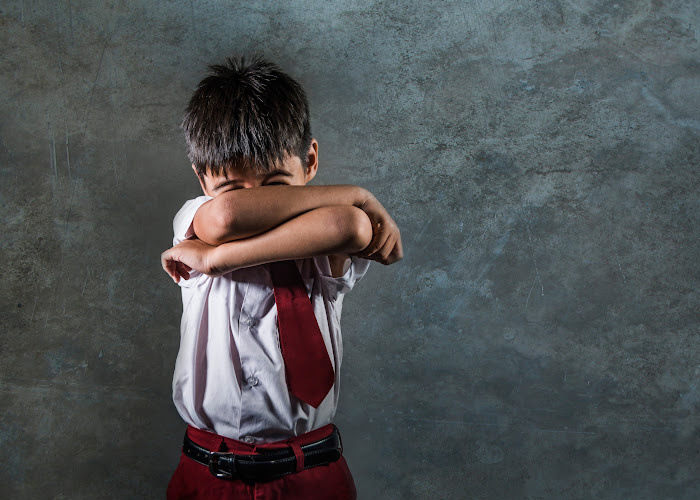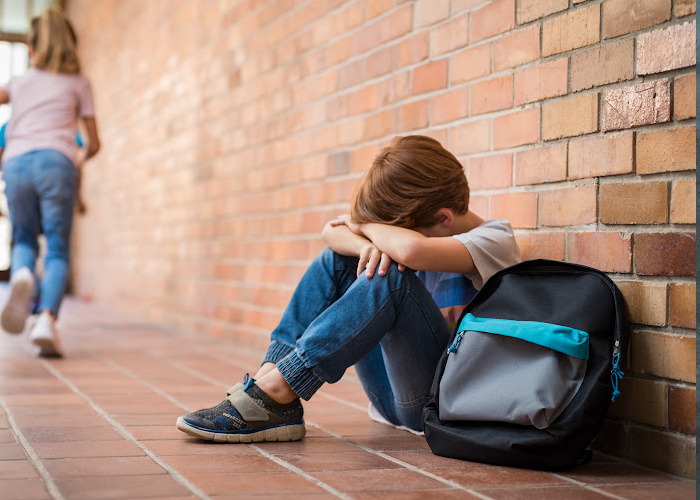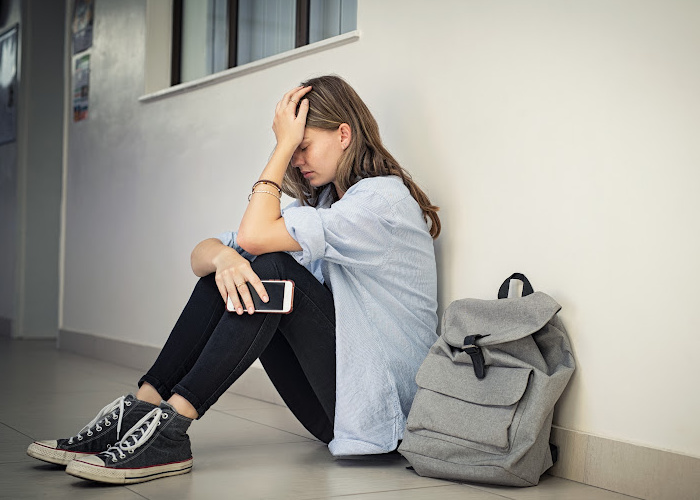It's crucial to know that students with autism and ADHD need special study strategies. Autism…

Understanding Why Autistic People Get Bullied: A Closer Look
If you’re wondering why do autistic people get bullied, it’s crucial to examine the underlying factors contributing to this issue. Unfortunately, bullying is a common experience for many individuals with autism, and it can have devastating long-term effects.
Autism bullying can take many forms, including physical, verbal, and emotional abuse. It can also involve exclusion and social isolation, which can be incredibly damaging for individuals with autism who struggle with social interaction.
In this article, we will explore the reasons behind bullying targeted towards autistic individuals, as well as the impact it can have on their lives. By understanding these issues, we can work towards creating a more inclusive and supportive society for people with autism.

Causes of Bullying in Autism
Understanding bullying in autism requires a closer examination of the underlying causes. While bullying can happen for a multitude of reasons, individuals on the autism spectrum are particularly vulnerable to being targeted.
One key factor contributing to bullying in autism is a lack of understanding and awareness from neurotypical individuals. Autistic individuals may struggle with social cues and communication, leading to misunderstandings or misinterpretations that can be exploited by bullies. In addition, the behaviours and interests of autistic individuals may be seen as odd or unusual by their peers, further contributing to social isolation and stigmatisation.
Another significant contributor to bullying in autism is the prevalence of ableism and discrimination in society. Autistic individuals are often seen as “different” or “less than”, and this negative perception can be amplified by bullies looking to exploit these differences.
Other potential causes of bullying in autism include:
- Poor support systems or lack of understanding from teachers, peers, or family members
- Exclusion from social groups or activities
- Difficulties with sensory processing that can lead to overstimulation or sensory meltdowns
- Unequal power dynamics, with bullies leveraging their social status or physical strength to intimidate or harm others
By recognising the root causes of bullying in autism, we can take steps to prevent and address this issue. This includes developing more inclusive and understanding environments, providing education and awareness training to teachers and peers, and fostering support systems to help autistic individuals cope with the emotional impact of bullying.

Effects of Bullying on Individuals with Autism
If you are autistic and have experienced bullying, you may have noticed a range of negative effects on your emotional and psychological well-being. Bullying can be particularly harmful for autistic individuals, who may struggle with social interactions and have difficulty interpreting and responding to social cues.
Some common effects of bullying on individuals with autism include:
- Increased anxiety and fear
- Depression and low self-esteem
- Social isolation and withdrawal
- Difficulty trusting others
- Reduced academic performance
- Post-traumatic stress disorder (PTSD)
These effects can be long-lasting and have a significant impact on an individual’s quality of life. That is why preventing bullying in autism is crucial.
Preventing Bullying in Autism
Preventing bullying in autism starts with creating a safe and supportive environment for autistic individuals. This can be achieved through:
- Education and awareness-raising about autism and the negative effects of bullying
- Providing appropriate support systems for autistic individuals who may struggle with social interactions or emotional regulation
- Empowering autistic individuals to advocate for themselves and speak out against bullying
- Intervening early and effectively when bullying does occur
By working together to prevent bullying in autism, we can promote a more inclusive and accepting society for all individuals.

Supporting Autistic Victims of Bullying
If you or someone you know has experienced bullying, it’s essential to seek support. Autistic individuals who have experienced bullying may feel overwhelmed and unsure where to turn. Fortunately, numerous resources are available to help them cope and heal from the trauma of bullying.
The first step is to talk about what happened. Sharing your experience with someone you trust can be a powerful tool in processing your emotions and moving forward. Consider confiding in a parent, teacher, counsellor, or friend who can provide a listening ear and offer support.
You may also benefit from seeking professional counselling to work through the emotional impacts of bullying. A licensed therapist with experience in treating autism and trauma can help you develop coping strategies, build resilience, and work towards healing.
It’s also crucial to develop a safety plan. A safety plan is a strategy for responding to bullying and staying safe in future situations. It involves identifying triggers, warning signs, and safe places to go if you feel threatened. Work with a trusted adult to develop a personalized safety plan that works for you.
Finally, it’s important to surround yourself with a supportive community. Connect with other autistic individuals who may have similar experiences and can offer understanding and validation. Joining support groups or engaging in online forums can provide a sense of belonging and help you feel less isolated.
Remember, support is available, and you don’t have to go through this alone. Reach out for help, and know that healing is possible.
Autism and Bullying Statistics
Autistic individuals are at a higher risk of experiencing bullying compared to those without autism. According to a survey conducted by the National Autistic Society, 90% of autistic students in the UK reported experiencing bullying in school.
Moreover, research by the Interactive Autism Network revealed that 63% of children with autism between the ages of 6 to 15 have faced bullying at some point. Additionally, 38% of parents of children with autism reported that their child had been bullied within the past month.
These statistics are alarming, considering the negative impact that bullying can have on the mental health and well-being of autistic individuals. Bullying can lead to anxiety, depression, low self-esteem, and even suicidal thoughts and behaviours. As such, it is crucial to raise awareness and take action against autism bullying.

Conclusion
After exploring the reasons behind bullying targeted towards autistic individuals and the detrimental effects it can have, it is clear that we need to work towards creating a more inclusive and understanding society.
It is not enough to simply recognize the issue; action must be taken to prevent bullying and provide support for those who have experienced it. By understanding the root causes of bullying in autism, we can develop effective strategies to prevent it from happening in the first place.
FAQs
Why do autistic people get bullied?
Autistic people may be targeted for bullying due to their differences in social communication and behaviour. Their unique traits and challenges can make them more vulnerable to bullying from others who may not understand or accept their differences.
What are the causes of bullying in autism?
The causes of bullying in autism can vary, but some common factors include a lack of understanding and acceptance of autism, misconceptions about autistic individuals, and the desire to exert power or control over someone who may be perceived as different.
What are the effects of bullying on individuals with autism?
Bullying can have severe and long-lasting effects on individuals with autism. It can lead to increased anxiety, depression, low self-esteem, social withdrawal, and even physical harm. It is crucial to address and prevent bullying to protect the well-being of autistic individuals.
How can we support autistic victims of bullying?
Supporting autistic victims of bullying involves creating safe and inclusive environments, providing emotional support, teaching coping strategies, raising awareness about autism, and promoting empathy and acceptance. It is essential to listen to their experiences and offer appropriate resources and interventions.
What are the autism and bullying statistics?
Autism and bullying statistics reveal that autistic individuals are more likely to experience bullying compared to their neurotypical peers. Studies have shown that about 63% of autistic children and teenagers are victims of bullying. Understanding these statistics can help advocate for change and address this issue effectively.



This Post Has 0 Comments